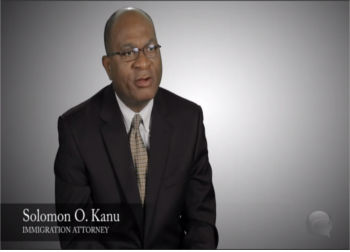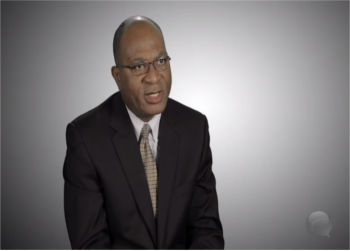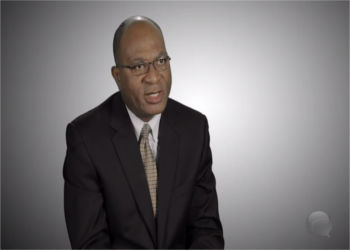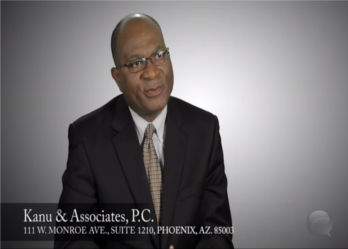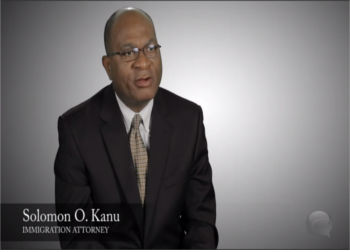Deportation Process (Video) | Phoenix Immigration Law
Solomon O. Kanu
Deportation or Removal
Deportation is the process of removing an alien from United States. It is also called removal, so removal proceedings, where someone is in United States is removed to their country, or any other country that would take the foreigner. It is one word that every foreigner dreads. Whether the foreigner is in proceedings, or their family member is in proceedings, is very frustrating. It’s one thing that I would never advise anyone to do on their own. I’ve advised people sometimes, to file some of the immigration papers themselves, but when it comes to deportation, it is so complicated that you definitely need a lawyer.
Defending Against Deportation
Now, we’ve been very successful in this, because we realize that most people that come to the United States, do really want to be here. They actually want to be here even for themselves, for their children, for their grandchildren. It’s not a place where they come, and they want to go back. So, when the United States government wants to remove you from United States, you do need a lawyer. You do need a lawyer that is experienced. You do need a lawyer that has the passion. You do need a lawyer that knows why you want to be here, because some people don’t even know why you want to be here.
Kanu & Associates
We manage a very effective defense. We have all the skill, and the enthusiasm to persuade the court to keep the person here. We’ve been very successful. Most of the cases we’ve taken, we’ve always been successful, because we analyze the case as well, before we take them. Even though, we cannot promise the outcome of the case, we promise the best efforts that we have, to ensure that people get relief from deportation.
By: Solomon Kanu
Deportation or Removal
Deportation is the process of removing an alien from United States. It is also called removal, so removal proceedings, where someone is in United States is removed to their country, or any other country that would take the foreigner. It is one word that every foreigner dreads. Whether the foreigner is in proceedings, or their family member is in proceedings, is very frustrating. It’s one thing that I would never advise anyone to do on their own. I’ve advised people sometimes, to file some of the immigration papers themselves, but when it comes to deportation, it is so complicated that you definitely need a lawyer.
Defending Against Deportation
Now, we’ve been very successful in this, because we realize that most people that come to the United States, do really want to be here. They actually want to be here even for themselves, for their children, for their grandchildren. It’s not a place where they come, and they want to go back. So, when the United States government wants to remove you from United States, you do need a lawyer. You do need a lawyer that is experienced. You do need a lawyer that has the passion. You do need a lawyer that knows why you want to be here, because some people don’t even know why you want to be here.
Kanu & Associates
We manage a very effective defense. We have all the skill, and the enthusiasm to persuade the court to keep the person here. We’ve been very successful. Most of the cases we’ve taken, we’ve always been successful, because we analyze the case as well, before we take them. Even though, we cannot promise the outcome of the case, we promise the best efforts that we have, to ensure that people get relief from deportation.
By: Solomon Kanu

